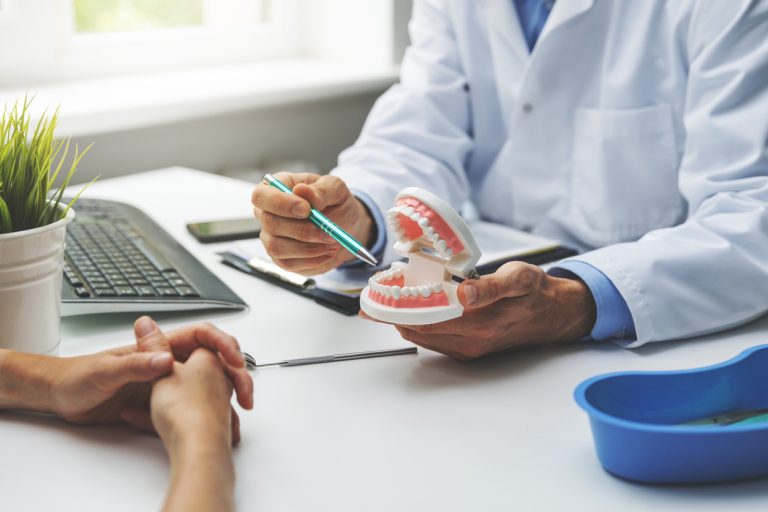Waking up with sore gums is never a fun experience. If that soreness doesn’t seem to subside, then you might want to schedule an oral health assessment ASAP. Visit your dentist in Glendora to learn why gums are an important part of a healthy smile. Your gums may be swollen around the area where the gums meet the teeth, which is likely very uncomfortable to deal with.
Many things can cause swollen gums, from gingivitis to malnutrition. Keep reading to learn more about what causes your gums to get swollen and what treatments are necessary to keep your mouth in good health.
Infections
Tooth infection is a leading source of gum swelling and soreness. Infections in the mouth are usually caused by a buildup of bacteria and other harmful substances in the mouth. When left untreated, this can infect a tooth and spread to the gums.
Other infections can cause swollen gums as well, such as a fungal or viral infection. Treatment varies depending on the severity of your infection, but you may need to invest in a tooth extraction to prevent it from spreading further.
Gingivitis
The most common reason for swollen gums is gingivitis. This is a condition that patients contract in the early stages of gum disease. You may have gingivitis if you notice symptoms of irritation, swelling, or redness in the gums.
You may have gingivitis due to a lack of good oral hygiene, or because of an outlying medical condition. It’s important to invest in daily brushing habits to prevent dangerous plaque and tartar from building up on your teeth. As this substance builds up, it spreads infection throughout your mouth.
Once the infection gets to the gums, you are susceptible to gum disease. Visit your local dentist ASAP to get your symptoms reversed before it’s too late.
Gum Disease
Gum disease is also known as periodontitis once it advances past the gingivitis stage. Periodontitis is a serious disease that can be detrimental to your oral health. If you have untreated gum disease, your gums have likely felt inflamed for quite some time and are causing serious pain.
Untreated periodontitis can put you at risk for infection that will spread throughout your body. When your gums aren’t treated, they can start to come loose from the teeth, causing your roots and pulp to be exposed.
Gum disease requires treatment from a special periodontist Glendora. A periodontist is a gum doctor who can help you assess the state of your gums and provide the best treatment possible for you.
Avoiding Swollen Gums at Home
Swollen gums are itchy, painful, and overall uncomfortable to deal with. But there are ways you can work to reduce the risk of gum disease by taking care of your gums at home. Here are some things you can do to get rid of inflammation:
Brush and floss every day. You don’t need to brush vigorously, as that will only irritate your gums. Use a soft-bristled brush and make sure to give your teeth a thorough cleaning every day.
Invest in gum disease toothpaste. There are many prescribed or over-the-counter toothpaste formulas that protect against gingivitis and help prevent gum disease.
Try out new eating habits. Sometimes a change in diet can work wonders for your mouth. Try to have well-balanced meals when you eat, and avoid too much sugar.
If your gums have been swollen and red for some time, it’s important to set an appointment with your local dentist right away.
Prevent Gum Disease ASAP
Swollen gums are usually a sign that there is an underlying problem. And it is important to assess this problem as quickly as you can so your gum issues do not advance into the beginning stages of gum disease.
If you already have gingivitis, it is doubly important to work with your dentist to find preventative measures so you can get rid of gingivitis and avoid periodontitis. Visit Glendora Family Dentistry for a gum health consultation today!



